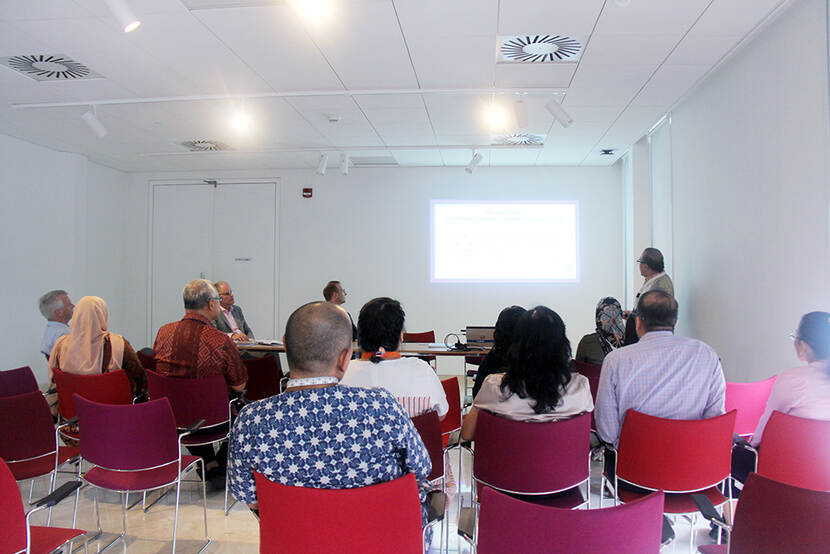Halal Policy: Opportunity or Barriers? And How to Deal With it
Jakarta, 09-05-2019 -- Aiming at having deeper understanding on the direction of the national economic development plan of Indonesia thus strengthening of the bilateral relations between The Netherlands and Indonesia, on 07 May 2019 the Agriculture Department jointly with the Economic Department of the Netherlands Embassy (EKN) organized an internal seminar titled “Halal Policy: Opportunity or Barriers? And How to Deal With it”.
The seminar invited two speakers: Prof. Marco Tieman, Founder & Chief Executive Officer of LBB International as well as Halal expert from the Netherlands, and Dr. Sapta Nirwandar, the director of Indonesian Halal Lifestyle Centre (IHLC).

Dr. Nirwandar spoke on the Indonesian Halal Economy and Strategy Roadmap launched in February 2019, as well as insights about where Indonesia is moving in terms of Halal Market and Export Opportunity. He mentioned that Indonesia has been developing a Modern Halal Valley, a 500-hectare green halal industrial zone, embracing Islamic values throughout its development. Modern Halal Valley is a new generation of modern industrial parks, meeting the highest standards in halal, food safety, and environmental sustainability. Modern Halal Valley is a halal cluster, extending its reach far beyond the 500 hectares of Modern Halal Valley land.
Prof. Tieman addressed about the Global view on Indonesian Halal policy, and what the Netherlands (business and government) can benefit from, as well as how to deal with the alleged barriers. His personal insight and experience working as Halal expert worldwide has enlightened the participants on how to view the halal control in Indonesia and work on it. Interestingly, while there is little doubt that the halal industry is catered to the Muslim market and all of the biggest importers of halal foods and beverages are Muslim-majority countries, strangely, it is non-Muslim countries which are the biggest exporters.
As the largest Muslim population on the planet, Indonesia aims to be the Engine of the Global Halal Economy. Halal Indonesia is recognized internationally as a preferred halal brand for halal industries, due to its transparent halal standard, efficient halal certification process and global market access. And as Indonesia is hosting the largest Muslim population in the world, the country is also the largest halal food market in the world, second largest halal cosmetics and fourth largest halal pharmaceutical market. The country has a fast growing middle class, driving domestic demand for high quality halal products. Leveraging on its strong natural resources, labor force, and halal brand, Indonesia is in an excellent position to develop a global halal production base to produce halal food for the world.
In 2014, the world’s biggest Muslim-majority country adopted a measure for labels certifying whether products are halal, or suitable for consumption in line with Islamic laws. Until before the Indonesia’s Presidential election on 17 April 2019, a presidential decree giving industries a transition period of several years to comply with the law still awaits Presidential signature.
Recently, the Indonesian government plans to launch the 2019-2024 Sharia Economy Masterplan on May 14, as a road map for the development of the sharia economy to support national economic development in the country. The masterplan draft highlights 4 main strategic recommendations to develop the sharia economy in Indonesia, that are strengthening halal products, sharia finance and micro, small and medium enterprises (MSMEs), as well as optimizing the digital economy.